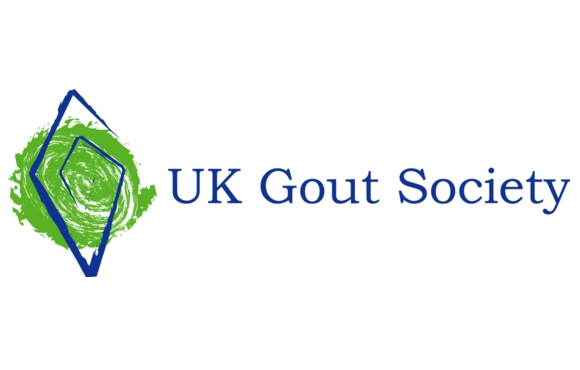by Lynsey Conway, UK Gout Society Secretariat
 I first became involved with the UK Gout Society 13 years ago. Like many people who have never experienced this excruciatingly painful condition, I had treated gout as a bit of a joke and had bought into the common misconception that it was solely an affliction of old men – and a product of high living. I soon realised, however, after reading many desperate letters and hundreds of heart-wrenching emails, that gout was not a laughing matter – and could affect anyone.
I first became involved with the UK Gout Society 13 years ago. Like many people who have never experienced this excruciatingly painful condition, I had treated gout as a bit of a joke and had bought into the common misconception that it was solely an affliction of old men – and a product of high living. I soon realised, however, after reading many desperate letters and hundreds of heart-wrenching emails, that gout was not a laughing matter – and could affect anyone.
In fact, gout is the most common form of inflammatory arthritis worldwide. Currently, one in 40 people in the UK have gout and between 1997 and 2012 the prevalence of gout rose by a whopping 64%. Caused by raised uric acid levels in the body, it is often associated with many other serious health conditions including kidney disease, diabetes, heart attack and stroke. Yet, sadly gout is not taken seriously enough – not just by the general public – but also by employers, public health officials and health professionals themselves.
Indeed, gout is not treated either properly or adequately. We know that many GPs concentrate more on treating the acute gout flare rather than minimising the likelihood of further attacks by prescribing long-term medication to rid the body of urate crystals in the joints and to prevent new crystals forming. According to a study published by the University of Nottingham at the beginning of 2014, access to effective medication continues to remain a significant problem for people living with the condition. In 2012, less than one in five patients were prescribed urate lowering therapy within six months of their diagnosis, and only a quarter were still on this treatment a year after being diagnosed.
 It is therefore apparent that educational initiatives to improve practitioner knowledge, interest and standards of care of this only ‘curable’ form of inflammatory arthritis are urgently required. Despite some improvements, the continued widespread lack of knowledge and poor alignment with current recommendations of best practice within the UK is astonishing.
It is therefore apparent that educational initiatives to improve practitioner knowledge, interest and standards of care of this only ‘curable’ form of inflammatory arthritis are urgently required. Despite some improvements, the continued widespread lack of knowledge and poor alignment with current recommendations of best practice within the UK is astonishing.
Joining ARMA, I realised that gout was not the only musculoskeletal disorder to battle with such awareness issues, and that many other colleagues from MSK organisations were facing similar frustrations. As a tiny charity such as ours, with limited resource, the opportunity to learn from other organisations and join forces in campaigning and educational initiatives is invaluable.
The UK Gout Society will be looking to engage in a number of initiatives over the coming months to educate and raise awareness of gout among primary health care professionals and allied professionals such as occupational health teams.

